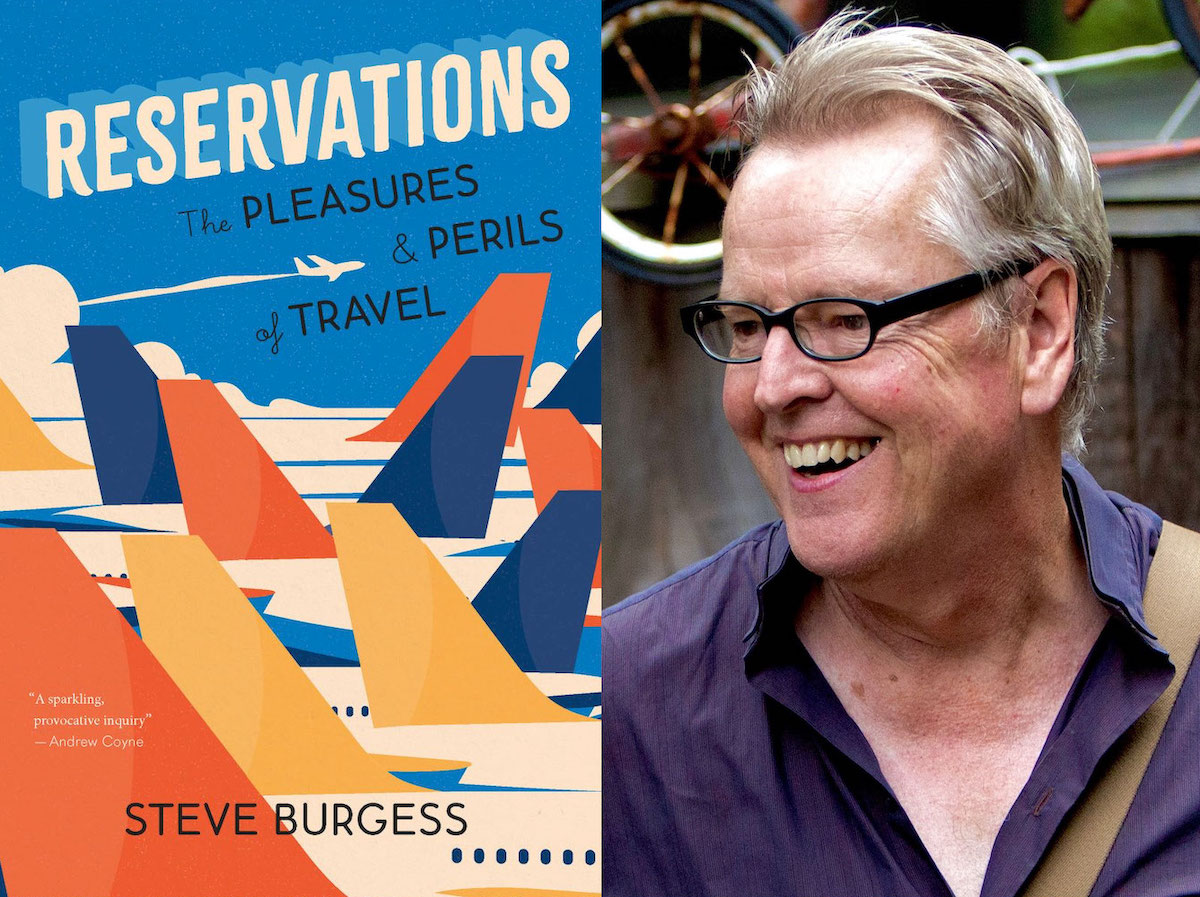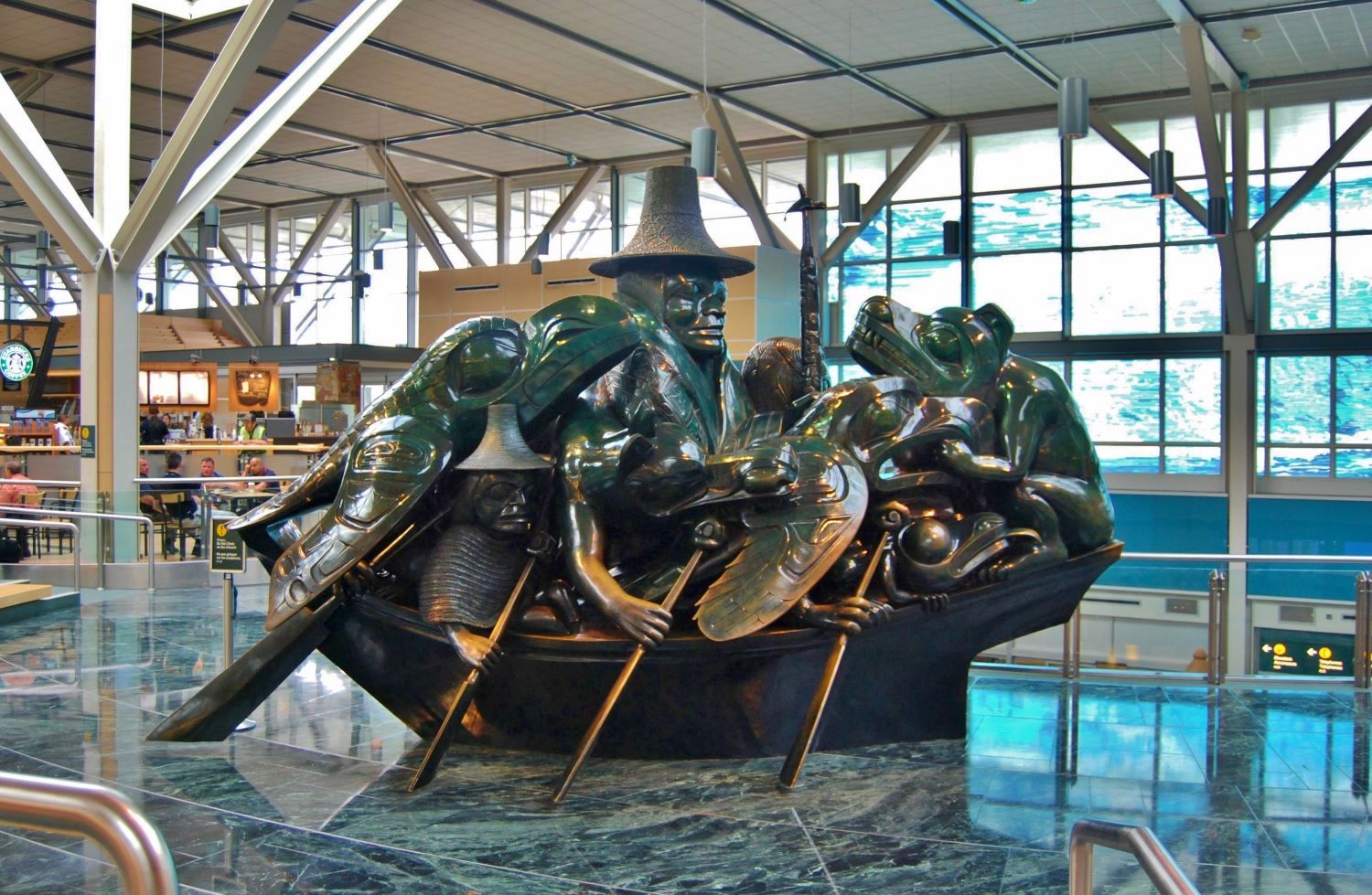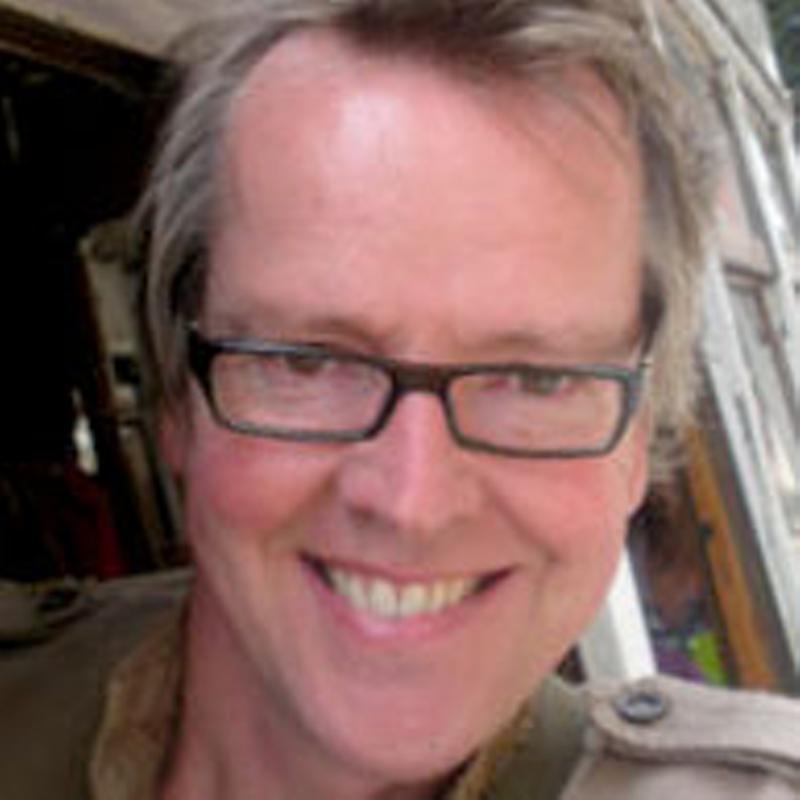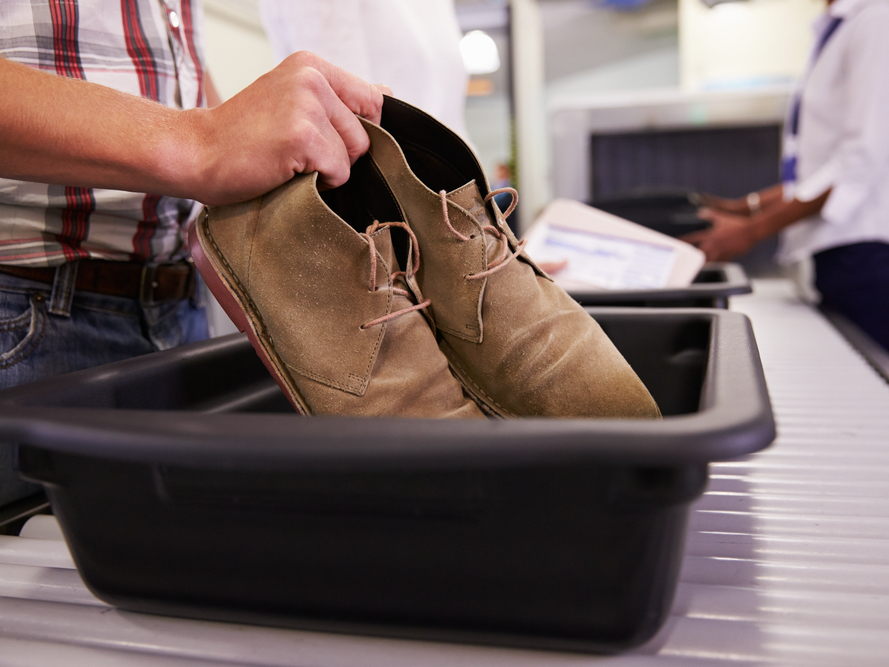[Editor’s note: This is excerpted from ‘Reservations: The Pleasures and Perils of Travel’ by Steve Burgess, contributing editor of The Tyee. Slated for April 27 release by Douglas & McIntyre, the book mixes memoir with deep dives into all ethical aspects of modern travel. After this section of Chapter 2, for example, Burgess spends many pages discussing with experts whether technology, taxes or other means can lower the emissions produced by airline travel. The part we’ve selected here invites you to share your feelings about wondrous, vexing and, yes, polluting, air travel. Post a comment!]
I am always nervous before a flight. The conception of a journey, the planning — these are pure joy, a favourite project that has the power to beckon you away from your real work for months beforehand. But as departure day approaches, jitters arrive. On the eve of departure I lie in bed and ask: Why? Why are you leaving the TV you love so deeply? Why are you abandoning your refrigerator, so full of carefully curated snacks? And your vermin-free mattress that you know for a fact has not been the site of any disgusting hanky-panky in living memory?
You have decided to uproot yourself. And for what? Death, maybe. Death in traffic after forgetting which side of the road locals drive on. Death from the sky — you’ve seen air disasters on Discovery Channel plenty of times. Death from a drunken cab driver. Tasty, stir-fried death from tainted shrimp with noodles. Death for chewing gum where prohibited. Some jurisdictions are very strict.
But the plans have been laid. The money has been paid. The envious friends have been told. You cannot forgo the envy of friends — there is Instagram to think of. And so you roll your suitcase into the hall, lock the door and cross the Rubicon. The SkyTrain actually crosses the Fraser on its way to Vancouver airport, but metaphors aren’t labelled on Google Maps.
For a lot of people, airports are like peyote — before you get high, there is a period of nausea. I don’t really feel that way. For me, arriving at the airport in Vancouver usually cues a positive psychological change. Domestic Man, the worried guy who stared at the ceiling the previous night, becomes dormant when I step off the train. In his place walks bold Odysseus. Nerves give way to anticipation. Even the prospect of hours wedged into a tubular holding cell seems acceptable. It’s just part of the journey, like blinding the Cyclops with a sharp stick.
It probably doesn’t hurt that my local facility is Vancouver International Airport (YVR). Named No. 1 North American airport at the Skytrax World Airport Awards for 12 consecutive years until 2022, YVR is open, airy and home to art installations that include the late Haida artist Bill Reid’s Spirit of Haida Gwaii: The Jade Canoe. A massive work once featured on the back of the Canadian 20-dollar bill, it depicts a vessel packed tight with contentious travellers. The original casting of the sculpture, commissioned for the Canadian Embassy in Washington, D.C., came in $1.25 million over budget and arrived two years late. No better choice for an airport.

Airports are not just physical spaces. More than any other public facilities — aside from hospitals, perhaps — they are psychological landscapes. Architecturally, functionally, emotionally, an airport changes depending on where you are and where you’re bound. Often the domestic terminal will be a little older, a little more cramped, and your state of mind there less expansive. Not that there’s anything wrong with going to Winnipeg or Edmonton. But having a ticket to one of those destinations makes the airport feel like a different place than it does when you’re holding a boarding pass stamped for Rome or Shanghai. The romance of your destination flows back to your point of departure, bathing it in anticipation and possibility.
You may even be able to cast your mind back to a time when an airport visit was a novel and exciting experience. I recall a teenage visit to Winnipeg, the big smoke two hours east of my hometown of Brandon. My young hosts and I smoked some pot and then made our big stoned expedition: a trip to the Winnipeg airport. Bright lights! Escalators! Wide open spaces! Open late! Surreal when empty! There was nothing like it in Brandon. Nothing else like it in Winnipeg either.
This is not to deny that airports are stressful. Airports are places where people lose their luggage and their minds. I recently watched a video of a woman in the Mexico City airport, apparently having just missed her flight, attacking Emirates airline employees before jumping on the ticket counter and hanging from a monitor. And I recently met a friend whose epic travel misfortunes had given him a unique answer to the question “Who are you wearing?” On the day we spoke Zak was wearing a shirt, pants, socks and (I took his word for it) underwear entirely supplied by airlines. Lufthansa bought his pants and underwear, United his olive green T‑shirt, Air Canada contributed socks and a stylish Hugo Boss shirt. This touching generosity was prompted by the fact that those three airlines had lost Zak’s bag four times in six days. His luggage had wandered rootless and alone through Munich, Berlin, Paris and Newark while Zak gradually acquired his emergency flight wardrobe. When you hear someone talk about a runway fashion show, this is probably not what they mean.
Travel can always involve unexpected complications. It is worth noting that the TV ad with the bold, affirming slogan “Because you are a traveller!” is for Twinrix. It’s a hepatitis vaccine. My suitcase and I have now reached YVR and we’re standing in line to check in. There is a man standing in front of me with a suspicious lack of luggage. I strike up a conversation and he tells me he is bound for a wedding in Vietnam — or at least, his family and friends are. His visa hasn’t come through and the airline won’t board him without one. He has applied for a fast-track version that will be ready in 24 hours and now he is back in line, hoping he can convince the airline to accept that state of affairs. Otherwise he faces disastrous fees and delays, and probably no wedding.

I look up and down the line at the impassive faces, most staring into phones. Our Boeing 787 seats approximately 250 passengers. And how many stories?
YVR has its ghosts. One level down from that beautiful Haida canoe there’s another notable location, the site of YVR’s darkest claim to fame — the spot at International Arrivals where, on Oct. 14, 2007, RCMP officers confronted a distraught immigrant named Robert Dziekański. The 40-year-old Polish man had arrived on a flight from Germany in mid-afternoon. Outside security, his mother, from Kamloops, B.C., was waiting to greet him. But Dziekański, who did not speak English, seems to have become lost somewhere in the secure area. Nine and a half hours later he was still there, becoming more and more distraught. He began throwing chairs. RCMP were called and Dziekański was tackled, tasered and restrained. Moments later he stopped breathing. Dziekański had apparently suffered a fatal heart attack.
There is in the Dziekański story the starkest possible manifestation of a traveller’s fear — a nightmarish, irrational fear, except that Dziekański is there to make it real. You are jet-lagged, stressed, frustrated, far away in a country not your own. Just how wrong can things go? What’s the worst that can happen? Your answer, reported then in shocking headlines and confirmed by subsequent criminal investigations: the worst.
Terrible as it was, that 2007 tragedy does not define the typical anxieties experienced by the average traveller. Yet even the more mundane concerns encountered at airports seem to have a power multiplied by the unforgiving nature of commercial flight. Your plane is not going to idle at the curb for you. Show up late, it’s gone. Your support systems may be an ocean away. And even during a relatively uneventful transition from pedestrian to Pegasus you will be treated to a brief taste of daily life at a medium-security federal prison.
The security gantlet can seem petty. But the screening is by no means pointless. Defying warnings, pat-downs, penalties and simple common sense, there are still plenty of folks who are, literally, packing heat. According to Forbes magazine, in the first 10 months of 2022 the U.S. Transportation Security Administration intercepted over 5,000 guns at security checkpoints, close to 90 per cent of them loaded. (Gun-happiest airport: Atlanta’s Hartsfield-Jackson, with over 500 weapons seized. Betting favourite Dallas Fort Worth International came in a distant second with a mere 317.)
Perhaps it is not surprising. Americans have cherished their guns ever since Moses brought the Second Amendment down from Mount Sinai. And after all, the laws are intended to stop bad people with guns, not honest pistol-packing citizens who will only produce a weapon if someone in front of them fully reclines their seat. No one could have a problem with that. (By contrast, guns — loaded or otherwise — are not really a major issue at Canadian airports, according to Sandra Alvarez of the Canadian Air Transport Security Authority. “It is rare for CATSA to encounter a gun at pre-board screening checkpoints,” Alvarez says. “As such, we don’t track these items specifically.”)
Carry-on baggage can be stressful. So don’t be too hard on the couple who abandoned their baby at a check-in counter at Ben Gurion Airport in January 2023. Attempting to catch a flight from Tel Aviv to Brussels, they realized that their baby needed a ticket and didn’t have one. Their flight was ready to leave. So they bolted, leaving their dependant behind at the check-in counter. They were brought back to the counter and detained by security, though ultimately no charges were laid.
I get it. It’s hard to anticipate what will fit in the overhead bins. And those regulations about how many fluids you can carry onto a flight? Babies violate those guidelines constantly and without warning. Best to be safe. Place your infant in the recycling bin before boarding and let’s all have a pleasant flight.
This is one of several occasional excerpts The Tyee will be sharing with permission from ‘Reservations: The Pleasures and Perils of Travel’ by Steve Burgess, to be published by Douglas & McIntyre on April 27, 2024. ![]()

















Tyee Commenting Guidelines
Comments that violate guidelines risk being deleted, and violations may result in a temporary or permanent user ban. Maintain the spirit of good conversation to stay in the discussion and be patient with moderators. Comments are reviewed regularly but not in real time.
Do:
Do not: